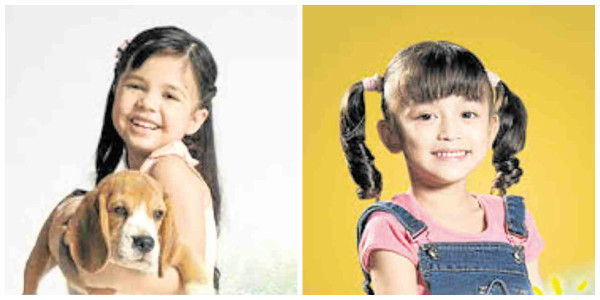Protecting child stars from success—and excess
Our recent column on strong TV format components underscored the emerging trend for more shows significantly featuring child performers.
They include teleseryes like “Ang Probinsyano,” kiddie talent tilts like “Your Face Sounds Familiar—Kids,” daytime series like “Langit Lupa” (with Xia Vigor), and primetime dramas like “My Dear Heart” (with Nayomi Ramos).
The “trending” popularity of child-centered shows should be cheered, since we need “inspirational” kids to balance the adult cynicism prevalent on TV.
But, the shows’ success needs to be balanced by a greater sense of responsibility on TV people’s part, to make sure that the child performers who are currently delighting the viewing public and making producers rich are judiciously used and treated.
This goes beyond the limited number of hours that child talents are obliged to work—which, by the way, are sometimes stretched when taping schedules urgently dictate.
Article continues after this advertisementOther considerations include protecting kids from being involved in emotionally vicious and even violent scenes with vengeful adult characters.
Article continues after this advertisementIn action-dramas, for instance, kids find themselves in the middle of gun battles that expose them too early to stress.
Yes, the juvenile characters they play are supposed to be terrified, but how do TV directors make sure that the young actors aren’t traumatized by the violently believable depiction?
Even domestic dramas involving kids being fought over by warring ex-spouses can give juvenile actors a jolt and scare that they’re too young, unformed and uninformed to properly process. And the “awa factor” of kids being made to cry often in 10-handkerchief melodramas can be pushed to excess—so, careful, careful!
With all of the delicate and risky considerations in potential and actual play, it’s advisable for daily TV shows to hire a child psychologist to help protect juvenile talents from unenlightened and unhealthy industry practices.
Some TV people are parents, too, but the production demands of work in television can be so specialized and psychologically demanding that greater expertise is needed to guard against their most potentially harmful consequences.
Even more specialized are the caveats related to the impersonation tilt, “Your Face Sounds Familiar—Kids.”
The temptation is to make child contestants perform and look like “little adults,” which viewers are supposed to find delightfully cute and clever—but, actually conjure up deeper and more complex issues and dangers.
When a kid portrays a woman in love or even “on fire,” is it safe to presume that the young performer will take it just as a clueless act, or will questions be raised that the kid is too immature to handle?
Yes, it’s all supposed to be frothy fun and games, but child psychologists are trained to spot the danger signs, and suggest proven ways to help young performers take them in the right context.
Better still, avoid them completely and let the kids be kids—while they still can!
